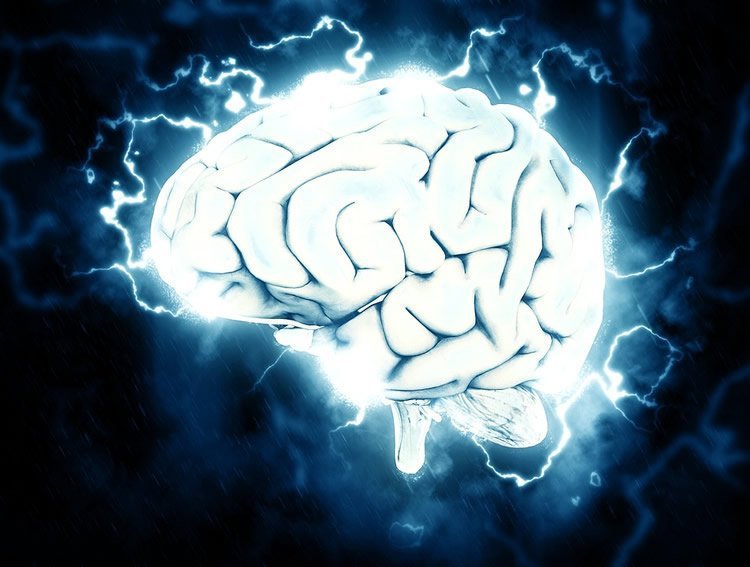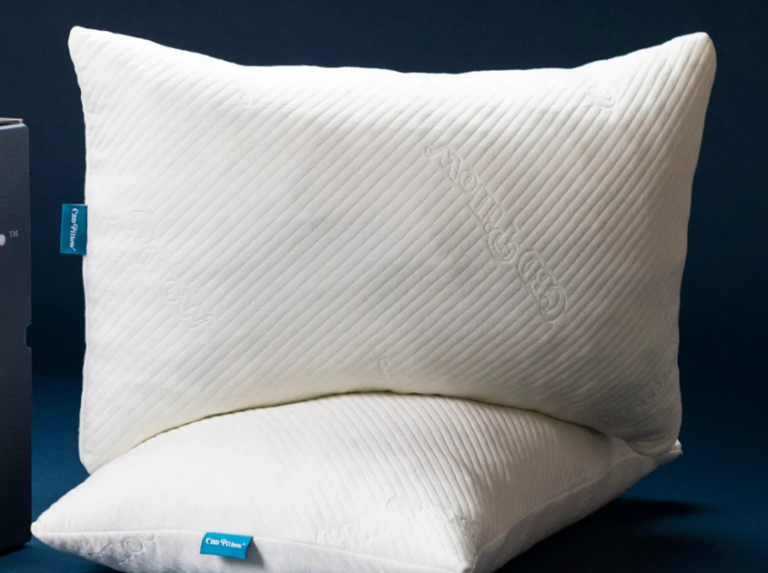Summary: Researchers provide further evidence that the cannabis compound, CBD, is effective at reducing seizures in people with epilepsy. The new study reveals CBD significantly reduced seizures in people with Lennox-Gastaut syndrome. Previously, the researchers demonstrated CBD was effective at seizure control in Dravet syndrome.
Source: NYU Langone
Cannabidiol (CBD), a compound derived from the cannabis plant that does not produce a “high” and has been an increasing focus of medical research, was shown in a new large-scale, randomized, controlled trial to significantly reduce the number of dangerous seizures in patients with a severe form of epilepsy called Lennox–Gastaut syndrome.
In the new study comparing 2 doses of CBD to a placebo, the researchers reported a 41.9 percent reduction in “drop seizures”—a type of seizure that results in severe loss of muscle control and balance—in patients taking a 20 mg/kg/d CBD regimen, a 37.2 percent reduction in those on a 10 mg/kg/d CBD regimen, and a 17.2 percent reduction in a group given a placebo.
The phase III trial was led by principal investigator and study first co-author Orrin Devinsky, MD, a professor of neurology, neurosurgery, and psychiatry at NYU School of Medicine and director of NYU Langone’s Comprehensive Epilepsy Center, and was published online May 17 in The New England Journal of Medicine.
“This new study adds rigorous evidence of cannabidiol’s effectiveness in reducing seizure burden in a severe form of epilepsy and, importantly, is the first study of its kind to offer more information on proper dosing,” says Dr. Devinsky. “These are real medications with real side effects, and as providers we need to know all we can about a potential treatment in order to provide safe and effective care to our patients.”
The study included an investigational liquid, oral formulation of CBD called Epidiolex. The product is manufactured by GW Pharmaceuticals, which operates in the U.S. as Greenwich Biosciences. GW Pharmaceuticals funded the clinical trial.
Safety of Two CBD Doses Studied
Lennox–Gastaut syndrome is a rare and severe form of epilepsy characterized by frequent drop seizures and severe cognitive impairment. Six medications are approved to treat seizures in patients with the syndrome, but disabling seizures occur in most patients despite these treatments.
Researchers enrolled 225 patients, age 2 to 55, with Lennox–Gastaut syndrome across 30 international sites in a randomized, double-blind, placebo-controlled trial to assess the efficacy and safety of 2 doses of CBD: Seventy-six patients received 20 mg/kg/d CBD, 73 received 10 mg/kg/d CBD, and 76 were given a placebo. All medications were divided into 2 doses per day for 14 weeks. The number of seizures were monitored beginning 4 weeks prior to the study for baseline assessment, then tracked throughout the 14-week study period and afterwards for a 4-week safety check.
Side effects occurred in 94 per of patients in the 20 mg CBD group, 84 percent in the 10 mg CBD group, and 72 percent of those taking placebo. Side effects were generally reported as mild or moderate in severity and included sleepiness, vomiting, diarrhea, fever, decreased appetite, and upper respiratory infection. Fourteen patients taking CBD experienced dose-related, elevated liver enzymes that were reversible. Seven participants from the CBD group withdrew from the trial due to side effects compared to one participant in the placebo group.
A study led by Dr. Devinsky published in last May’s New England Journal of Medicine showed a 39 percent drop in seizure frequency in patients with a different rare form of epilepsy, Dravet syndrome. Those findings represented the first large-scale, randomized clinical trial for the compound. Open label CBD studies led by Dr. Devinsky also have shown positive results for treatment-resistant epilepsies.

In April, a U.S. Food and Drug Administration (FDA) advisory panel unanimously voted to recommend approval of a new drug application for Epidiolex cannabidiol oral solution, following a meeting where researchers, including Dr. Devinsky, presented their findings. The FDA will decide whether to approve the medication in late June.
“While the news gives hope for a new treatment option to the epilepsy community, more research remains imperative to better determine the effects of CBD and other similar cannabis-derived compounds on other forms of the disease and in more dosing regimens,” says Dr. Devinsky.
”This landmark study provides data and evidence that Epidiolex can be an effective and safe treatment for seizures seen in patients with Lennox–Gastaut Syndrome, a very difficult to control epilepsy syndrome,” adds study co-first author, Anup Patel, MD, chief of neurology at Nationwide Children’s Hospital.
About this neuroscience research article
Funding: Dr. Devinsky received research funding from GW Pharmaceuticals, but no salary support outside of a one-time consulting fee for participating in the FDA advisory panel. He holds equity interests in Pairnomix, Receptor Life Sciences Rx, Tilray, Rettco, and Tevard.
In addition to Dr. Devinsky, the co-authors in this study are Anup D. Patel, MD; J. Helen Cross, MB, ChB, PhD; Vicente Villanueva, MD, PhD; Elaine C. Wirrell, MD; Michael Privitera, MD; Sam M. Greenwood, PhD; Claire Roberts, PhD; Daniel Checketts, MSc; Kevan E. VanLandingham, MD, PhD; and Sameer M. Zuberi, MB, ChB, MD, for the GWPCARE3 Study Group.
Source: Ryan Jaslow – NYU Langone
Publisher: Organized by NeuroscienceNews.com.
Image Source: NeuroscienceNews.com image is in the public domain.
Original Research: Abstract for “Effect of Cannabidiol on Drop Seizures in the Lennox–Gastaut Syndrome” by Orrin Devinsky, M.D., Anup D. Patel, M.D., J. Helen Cross, M.B., Ch.B., Ph.D., Vicente Villanueva, M.D., Ph.D., Elaine C. Wirrell, M.D., Michael Privitera, M.D., Sam M. Greenwood, Ph.D., Claire Roberts, Ph.D., Daniel Checketts, M.Sc., Kevan E. VanLandingham, M.D., Ph.D., and Sameer M. Zuberi, M.B., Ch.B., M.D. for the GWPCARE3 Study Group in New England Journal of Medicine. Published May 17 2018.
doi:10.1056/NEJMoa1714631
Cite This NeuroscienceNews.com Article
[cbtabs][cbtab title=”MLA”]NYU Langone “Cannabidiol Significantly Reduces Seizures in Patients with Severe Form of Epilepsy.” NeuroscienceNews. NeuroscienceNews, 17 May 2018.
<https://neurosciencenews.com/cannabidiol-epilepsy-seizures-9076/>.[/cbtab][cbtab title=”APA”]NYU Langone (2018, May 17). Cannabidiol Significantly Reduces Seizures in Patients with Severe Form of Epilepsy. NeuroscienceNews. Retrieved May 17, 2018 from https://neurosciencenews.com/cannabidiol-epilepsy-seizures-9076/[/cbtab][cbtab title=”Chicago”]NYU Langone “Cannabidiol Significantly Reduces Seizures in Patients with Severe Form of Epilepsy.” https://neurosciencenews.com/cannabidiol-epilepsy-seizures-9076/ (accessed May 17, 2018).[/cbtab][/cbtabs]
Abstract
Effect of Cannabidiol on Drop Seizures in the Lennox–Gastaut Syndrome
BACKGROUND
Cannabidiol has been used for treatment-resistant seizures in patients with severe early-onset epilepsy. We investigated the efficacy and safety of cannabidiol added to a regimen of conventional antiepileptic medication to treat drop seizures in patients with the Lennox–Gastaut syndrome, a severe developmental epileptic encephalopathy.
METHODS
In this double-blind, placebo-controlled trial conducted at 30 clinical centers, we randomly assigned patients with the Lennox–Gastaut syndrome (age range, 2 to 55 years) who had had two or more drop seizures per week during a 28-day baseline period to receive cannabidiol oral solution at a dose of either 20 mg per kilogram of body weight (20-mg cannabidiol group) or 10 mg per kilogram (10-mg cannabidiol group) or matching placebo, administered in two equally divided doses daily for 14 weeks. The primary outcome was the percentage change from baseline in the frequency of drop seizures (average per 28 days) during the treatment period.
RESULTS
A total of 225 patients were enrolled; 76 patients were assigned to the 20-mg cannabidiol group, 73 to the 10-mg cannabidiol group, and 76 to the placebo group. During the 28-day baseline period, the median number of drop seizures was 85 in all trial groups combined. The median percent reduction from baseline in drop-seizure frequency during the treatment period was 41.9% in the 20-mg cannabidiol group, 37.2% in the 10-mg cannabidiol group, and 17.2% in the placebo group (P=0.005 for the 20-mg cannabidiol group vs. placebo group, and P=0.002 for the 10-mg cannabidiol group vs. placebo group). The most common adverse events among the patients in the cannabidiol groups were somnolence, decreased appetite, and diarrhea; these events occurred more frequently in the higher-dose group. Six patients in the 20-mg cannabidiol group and 1 patient in the 10-mg cannabidiol group discontinued the trial medication because of adverse events and were withdrawn from the trial. Fourteen patients who received cannabidiol (9%) had elevated liver aminotransferase concentrations.
CONCLUSIONS
Among children and adults with the Lennox–Gastaut syndrome, the addition of cannabidiol at a dose of 10 mg or 20 mg per kilogram per day to a conventional antiepileptic regimen resulted in greater reductions in the frequency of drop seizures than placebo. Adverse events with cannabidiol included elevated liver aminotransferase concentrations. (Funded by GW Pharmaceuticals; GWPCARE3 ClinicalTrials.gov number, NCT02224560.)
Feel free to share this Neuroscience News.
Source: neurosciencenews.com






